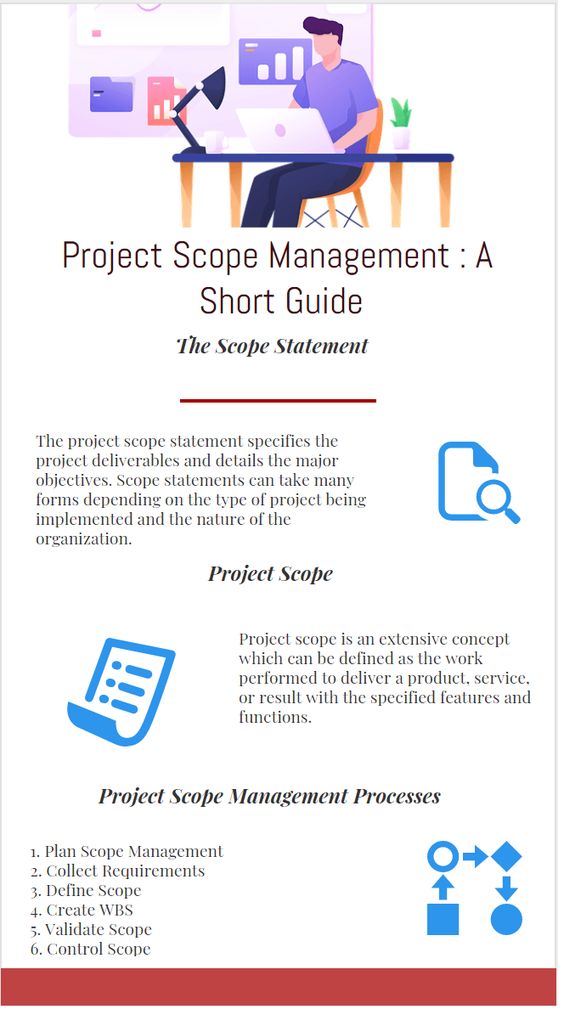Definition of Scope
Project scope is the definition of the work that needs to be done in order to successfully complete a project. It is the part of project planning that involves determining and documenting a list of specific project goals, deliverables, tasks, costs and deadlines. The scope of a project is the most important element of any project as it defines the boundaries of the project and helps to ensure that all stakeholders are on the same page.
Importance of Scope
The scope of a project is important because it allows project managers to understand the size and complexity of the project and to plan accordingly. It also helps to ensure that all stakeholders understand the project’s objectives and expectations. By defining the scope of a project, project managers can ensure that the project stays on track and that the team is focused on the right goals.
How to Create a Project Scope
Creating a project scope involves gathering information from all stakeholders and then defining the project’s objectives, deliverables, tasks, costs and deadlines. It is important to ensure that all stakeholders are involved in the process and that their input is taken into consideration. Once the scope has been defined, it should be documented and shared with all stakeholders.
Tools for Managing Project Scope
There are a number of tools that can be used to manage project scope. These include project management software, Gantt charts, work breakdown structures, project charters and scope statements. These tools can be used to help project managers plan, track and manage the scope of a project.
Managing Scope Changes
Project scope is not static and can often change as the project progresses. It is important for project managers to be able to manage scope changes effectively. This can be done by using change management tools and techniques such as change request forms, impact analysis and risk management.
Communicating Scope
Project scope needs to be communicated to all stakeholders in order for the project to be successful. This can be done through regular meetings, emails, presentations and other forms of communication. It is important to ensure that all stakeholders are aware of the project’s scope and that any changes are communicated in a timely manner.
Controlling Scope
Project scope needs to be controlled in order to ensure that the project stays on track and that all stakeholders are working towards the same goals. This can be done by tracking progress, monitoring costs and ensuring that all tasks are completed on time.
You might find these FREE courses useful
- Create a Project Management Dashboard
- Top Project Management Certification Google Courses
- Top Project Management Courses – Learn Project
- Top Project Management Principles And Practices
Measuring Scope
Project scope can be measured in a number of ways. This includes tracking project costs, tracking project progress, measuring customer satisfaction and measuring the quality of the deliverables. Measuring scope is important in order to ensure that the project is on track and that all stakeholders are satisfied with the outcome.
